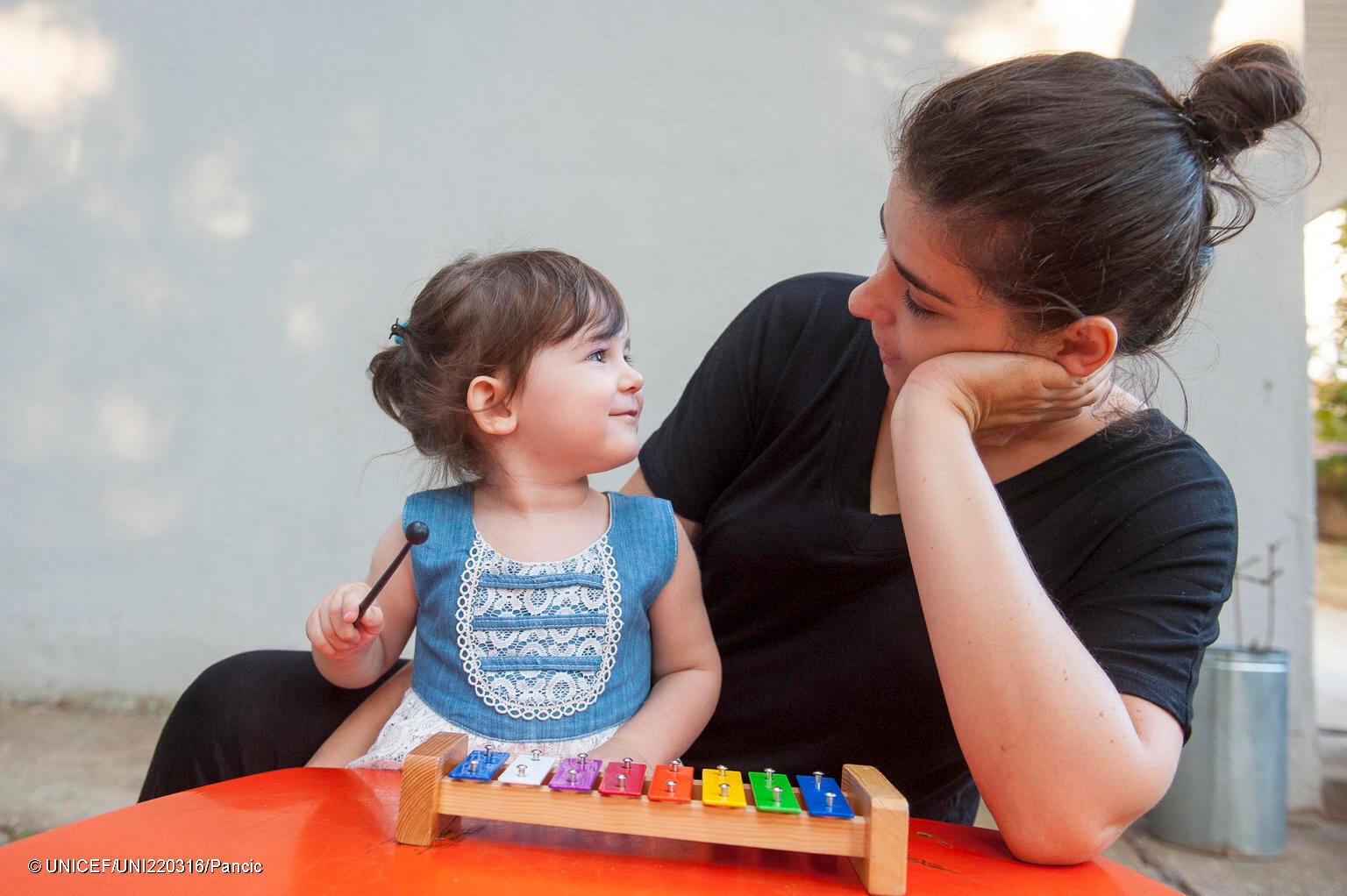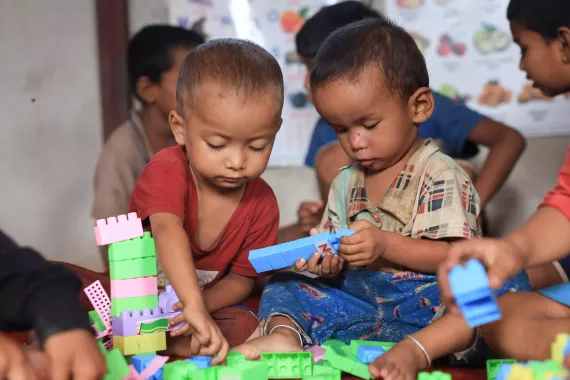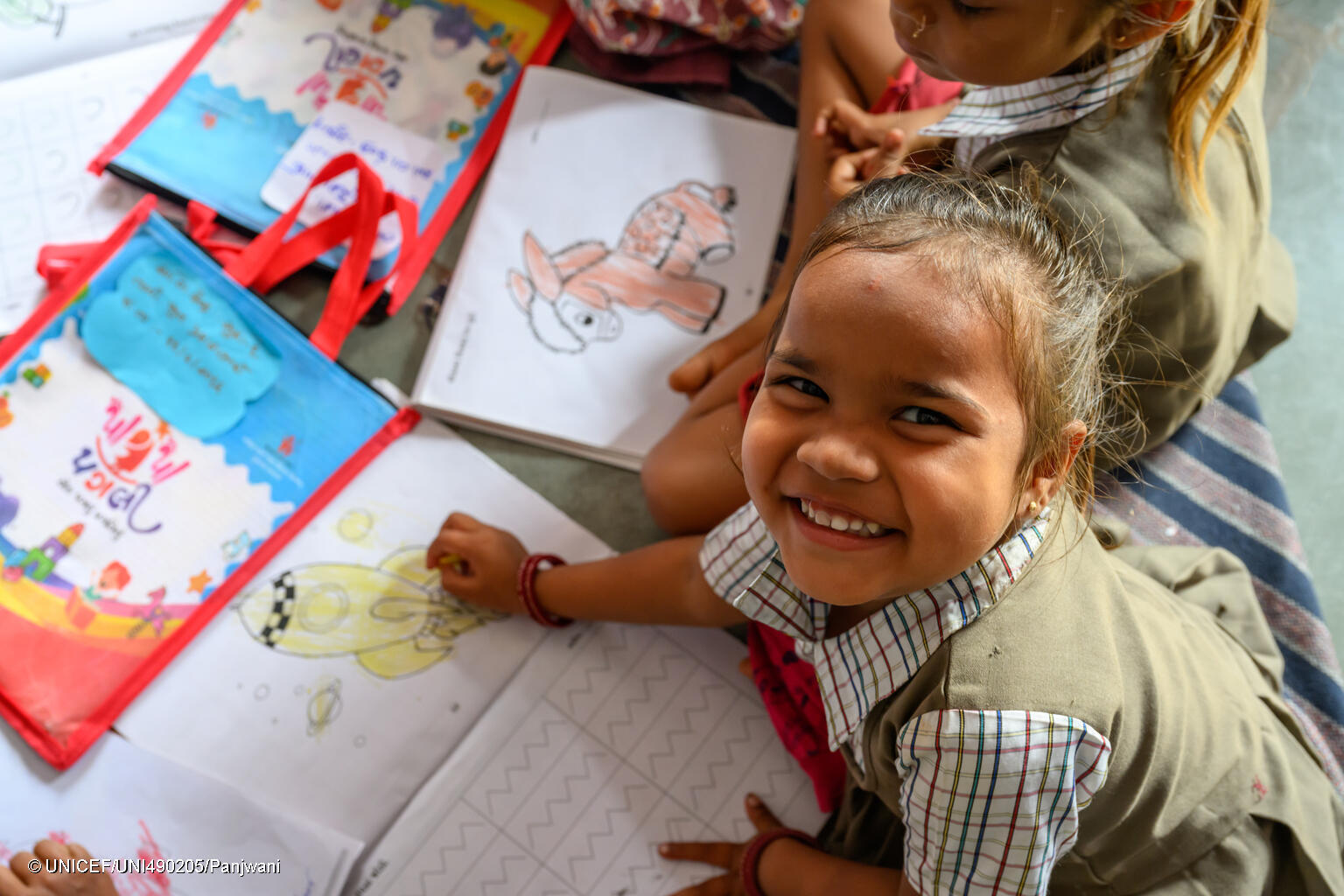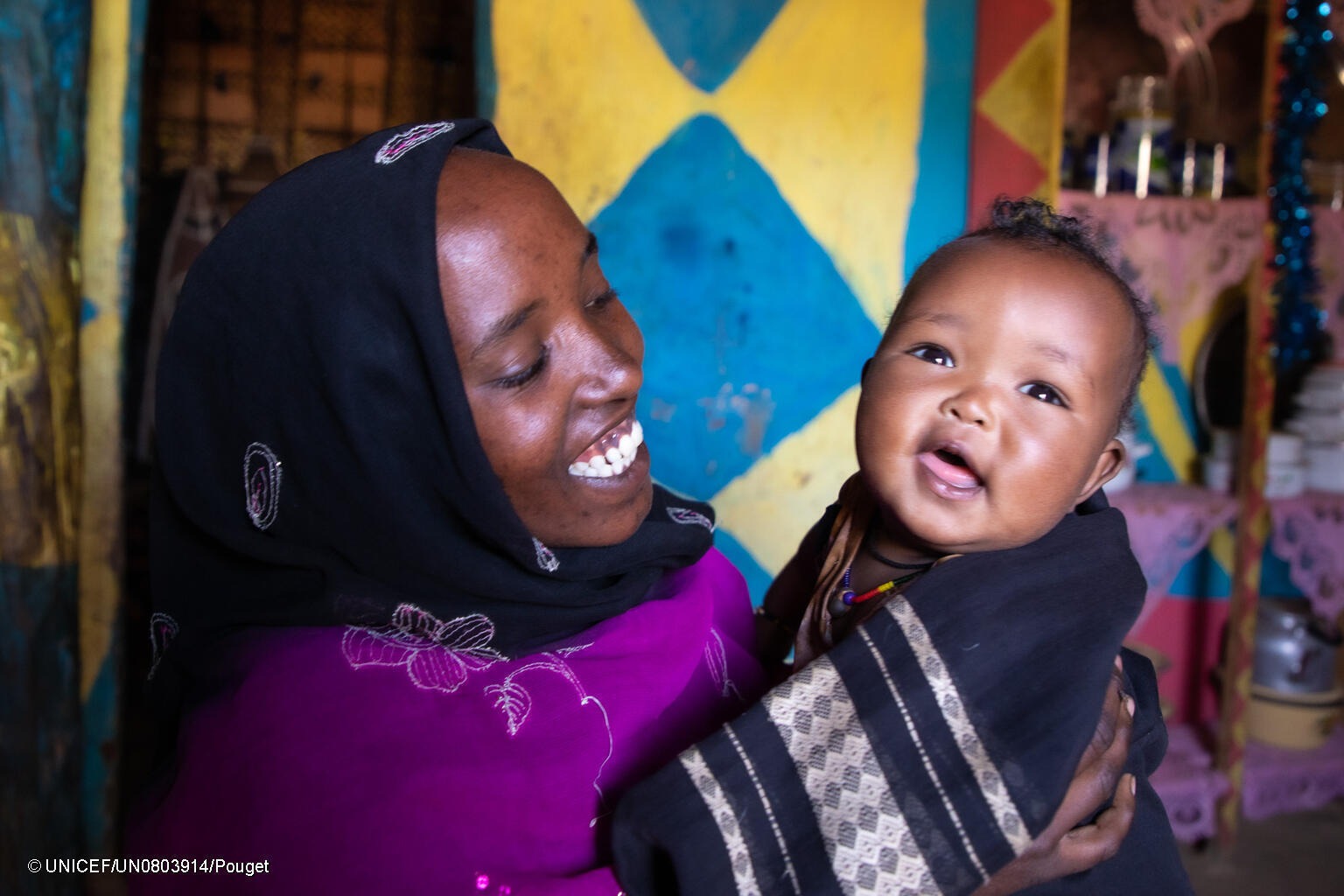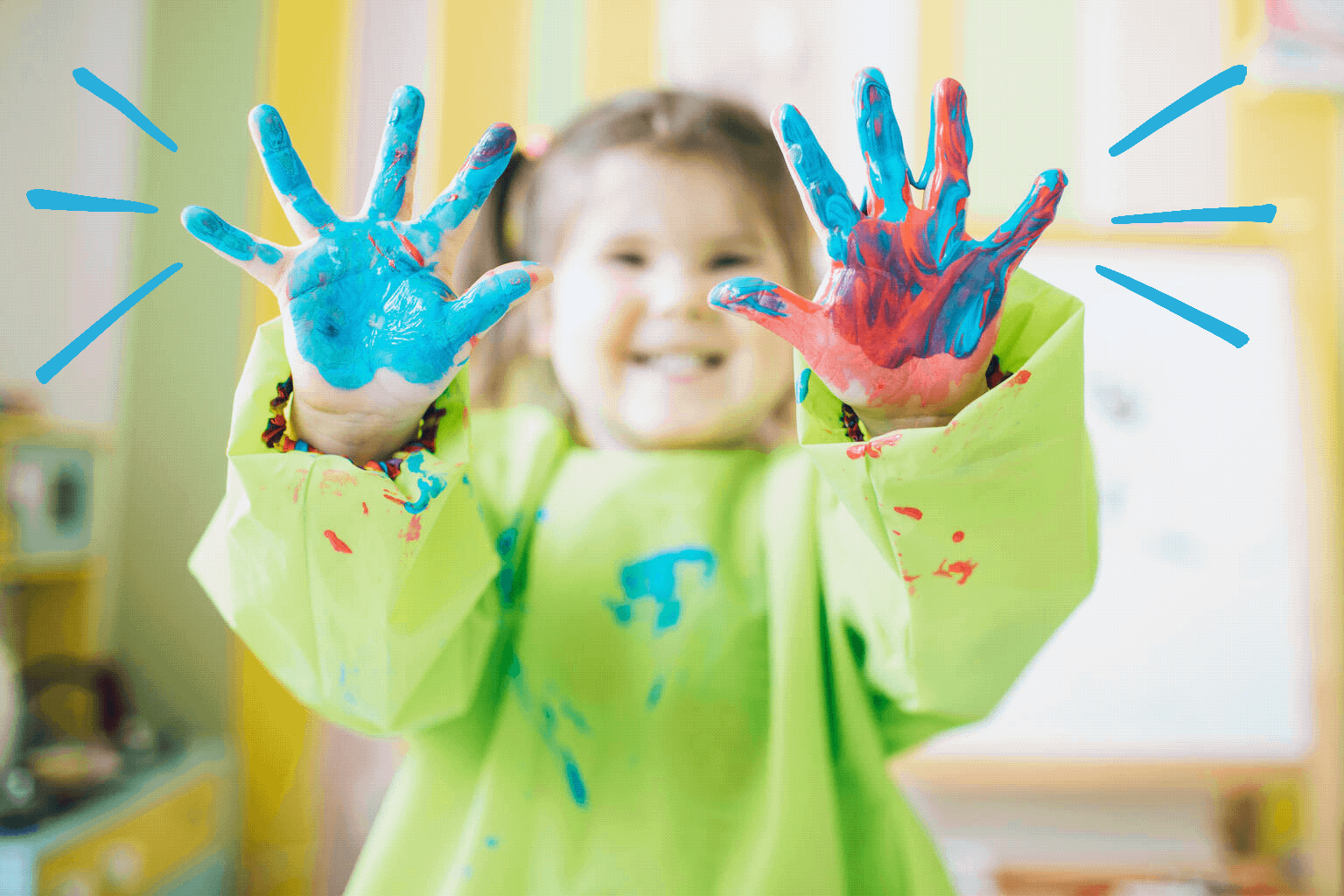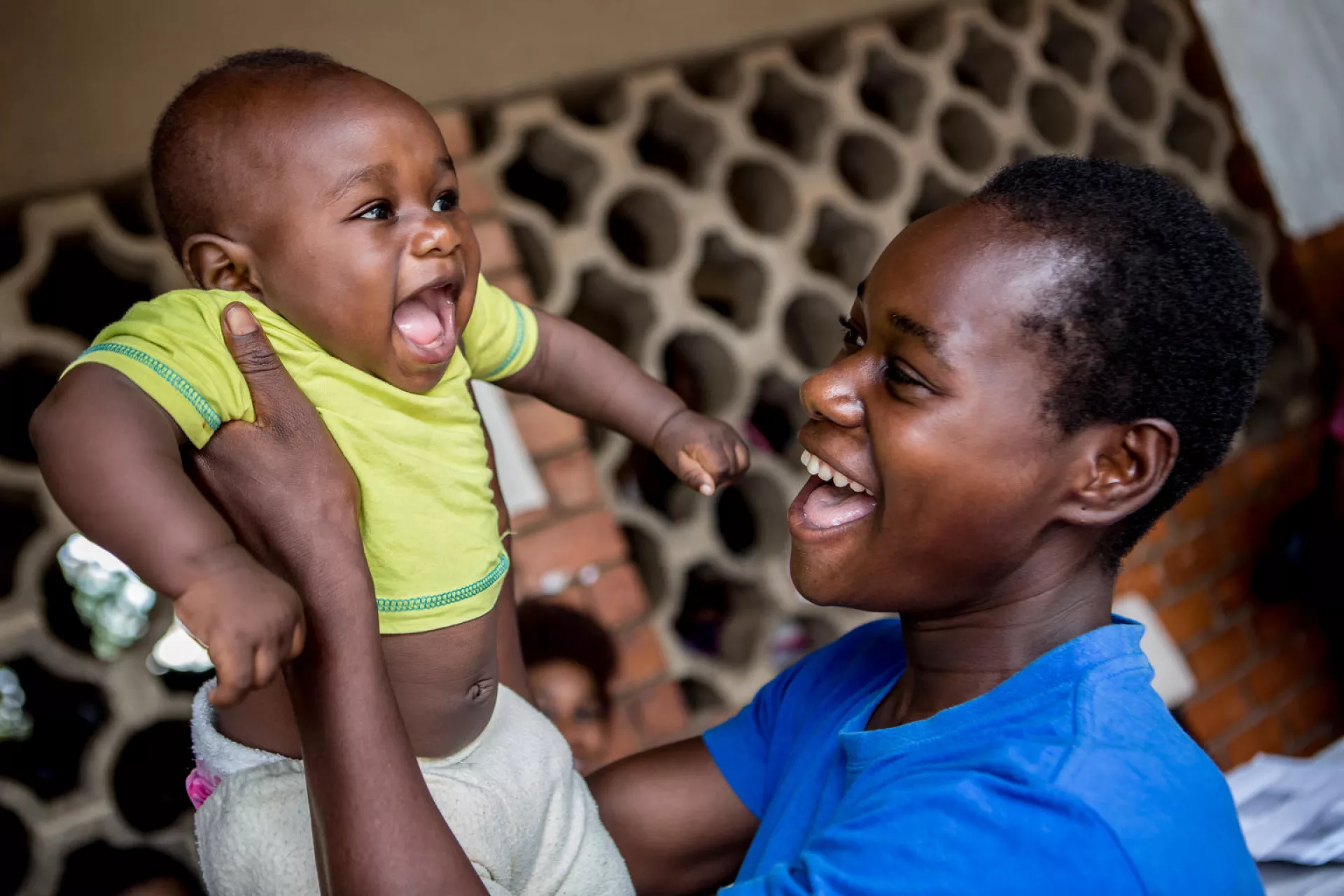A place where children can be children
UNICEF’s Child-Friendly Spaces are safe places that UNICEF sets up during and after a crisis to help children cope with the trauma they’re experiencing.
The focus is on play, allowing children to escape the trauma of war or natural disaster.
Read on to learn more about how these safe havens are bringing laughter and light to children, and for some fun games you can play at home.
